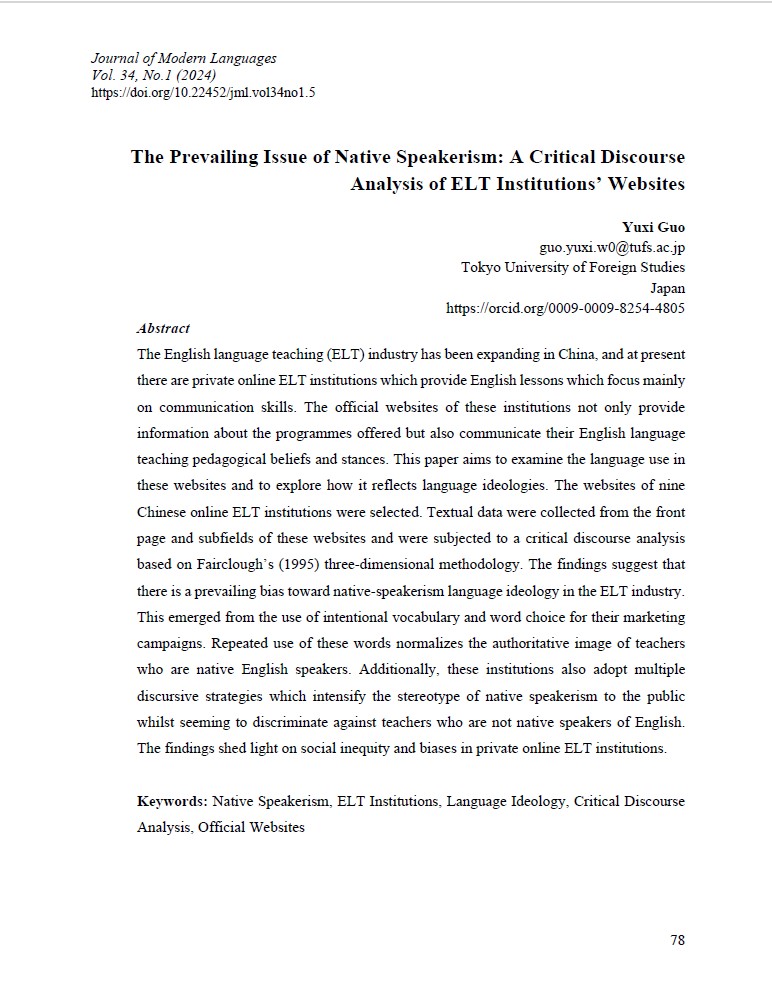The Prevailing Issue of Native Speakerism: A Critical Discourse Analysis of ELT Institutions’ Websites
Main Article Content
Abstract
The English language teaching (ELT) industry has been expanding in China, and at present there are private online ELT institutions which provide English lessons which focus mainly on communication skills. The official websites of these institutions not only provide information about the programmes offered but also communicate their English language teaching pedagogical beliefs and stances. This paper aims to examine the language use in these websites and to explore how it reflects language ideologies. The websites of nine Chinese online ELT institutions were selected. Textual data were collected from the front page and subfields of these websites and were subjected to a critical discourse analysis based on Fairclough’s (1995) three-dimensional methodology. The findings suggest that there is a prevailing bias toward native-speakerism language ideology in the ELT industry. This emerged from the use of intentional vocabulary and word choice for their marketing campaigns. Repeated use of these words normalizes the authoritative image of teachers who are native English speakers. Additionally, these institutions also adopt multiple discursive strategies which intensify the stereotype of native speakerism to the public whilst seeming to discriminate against teachers who are not native speakers of English. The findings shed light on social inequity and biases in private online ELT institutions.

